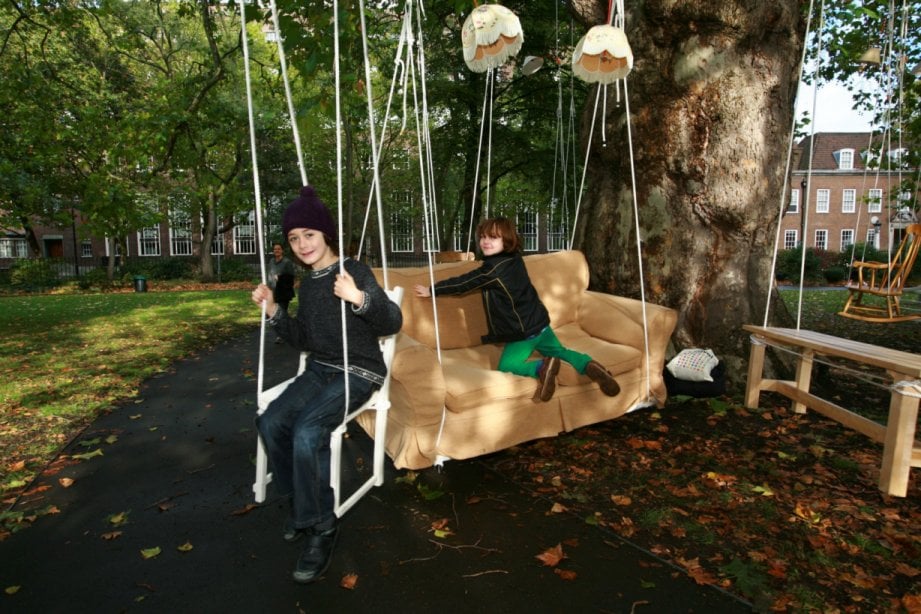
The arts in a box
The Bloomsbury Festival in a Box outreach scheme is tackling cultural exclusion, reports Cathy Mager.
They say it’s lonely at the top. I am a festival director and I am lonely. But not for the reasons you might expect. As a chief executive of an annual festival in London, I schedule over 200 music events, talks and performances that draw 50,000 people to the area. All part of the job for a festival director – except that I am deaf and rely on a limited funded quota of sign language interpreters to access the very programme I am responsible for. This means I often struggle to access the tantalising cultural delights I am surrounded with on a daily basis. Sometimes I feel a sense of loss about this. At the same time, it gives me a profound empathy with others who experience similar barriers to accessing the arts.
Every year, the festival I now direct in Bloomsbury transforms London’s most undiscovered cultural quarter into a magical playground of ideas. We believe that sharing arts and culture on an equal and free basis is fundamental to the wellbeing of our community. Yet finding the resources to provide access and to support participation is difficult − and it can be a strange experience to be on both sides of the fence on this issue. As the German comedian Karl Valentin once said: “Participation is beautiful but it’s a lot of work.”
Many people never get a chance to celebrate their membership of cultural society
The festival industry in the UK is an unstoppable phenomenon. Whether it is superstar rock bands taking over giant fields and drawing audiences of hundreds of thousands, or an inner city community parade led by hundreds of volunteers proudly dancing in hand-made costumes. Yet often the ‘something for everyone’ and ‘free for all’ mantra of these events often overlooks the many people that are excluded due to disability, social or intellectual barriers. Many people never get a chance to celebrate their membership of cultural society, their sense of place or their opinion of art, save but through perhaps reading about it after the event or watching it on television.
I want to see Bloomsbury Festival grow to become the UK’s centre of excellence for participatory arts practice. Unique local collaborations already thrive in great diversity in our 2013 programme. From floral flashmobs by the October Gallery led by local women who have been trafficked, to children’s rights processions led by local schoolchildren and international law firm Mishcon de Reya, to brain paintings by patients recovering from strokes at University College London (UCL), the festival acts as a shared and level platform of self-expression that seeks to give all sections of the community a voice.
Yet in the early days of my new job, I met with local community leaders and discovered not everyone was taking part. Their feedback included how older people isolated by disability were excluded from the festival. This compelled me to set up a year-round outreach service that brought the festival experience into the living rooms of the people who could not physically be there. We know not everyone in our community can come to our festival − but we want to take the festival to everyone.
‘Bloomsbury Festival in a Box’ has become the title of this outreach scheme. It aims to send trained artists equipped with life-changing, multi-sensory boxes of cultural delights into homes of people living with dementia. Andrew Lock of the design agency Lyn Atelier will create the first of the festival ‘bento’ boxes. Festival-goers and contributing artists will help curate the contents of the boxes before they are taken out into local homes. The first series of home visits have been made possible by a research project led by Dr Michael Eades of the Bloomsbury-based School of Advanced Study at the University of London. Michael’s work is being funded by the Arts and Humanities Research Council to assess the impact of the outreach scheme supported by experts from UCL and AgeUK Camden. This forms what truly is a dream team of expertise and knowledge to lay the foundations of the scheme.
Dementia is expected to affect in excess of a million people by 2030, and is already estimated to cost the UK economy around £17 billion a year. There is a burning social need for both creative interventions to reach out to people living with dementia, who are often isolated and lacking the skills and confidence to participate in society. Research has highlighted the devastating impacts that their resulting loneliness can have on their health. Services such as befriending schemes can play a vital role but in Bloomsbury, as in many areas, funding for such schemes is being cut. The need for new and innovative ways of bringing people with dementia back into the community is pressing.
The potential for wider application of Bloomsbury Festival in a Box is exciting. In future, we want to take this cultural meals-on-wheels to others, such as young people in hospital or people too ill to leave home. As I am made all too aware on a daily basis by my own experience of disability, access to the arts is not always as straightforward as it could be. But no one should be excluded from cultural life.
Cathy Mager is the Director of Bloomsbury Festival.
www.bloomsburyfestival.org.uk/participation
www.sas.ac.uk
Join the Discussion
You must be logged in to post a comment.